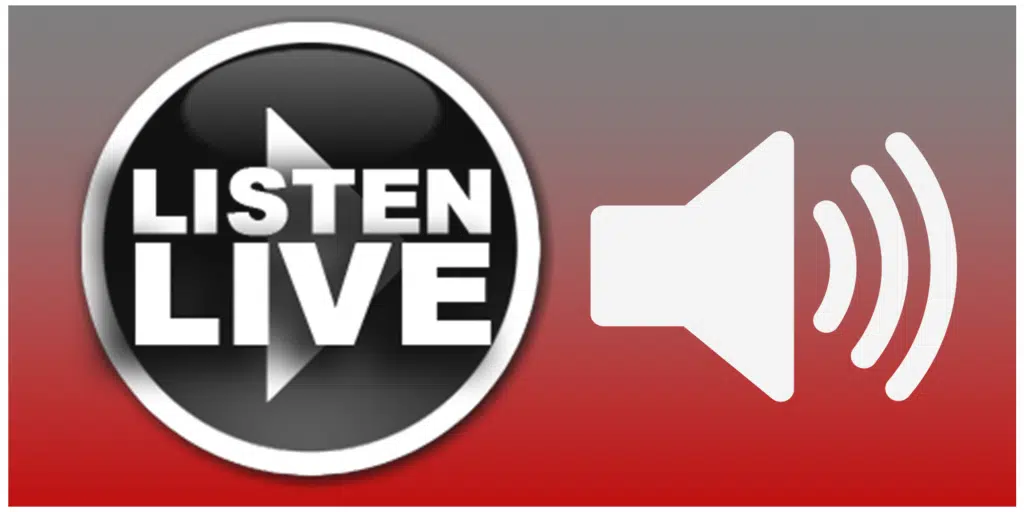Saturday (January 8th) marks what would have been the “King of Rock n' Roll” Elvis Presley's 85th birthday. From his meteoric rise to fame in the 1950's, to his death at the age of 42 in 1977, through to the present-day; the world is still fascinated by everything that is Elvis. After working as a movie theater usher and a truck driver for a Memphis Electrical Company, Elvis began singing locally as “The Hillbilly Cat,” and signed to the late Sam Phillips' Sun Records, who then sold his contract for $35,000 to RCA Victor in 1955. Elvis went on to become rock's first true global superstar.
Following years of declining health and prescription drug abuse, Elvis died of a heart attack on August 16th, 1977 at his Graceland mansion in Memphis, Tennessee. He remains among the highest earning dead celebrities. Internationally, Elvis has sold well over one billion records, more than any other artist. His American sales have earned him gold, platinum or multi-platinum awards for 140 different albums and singles. Elvis starred in 31 films and made history with his television appearances and specials.
Over the decades “The King's'” career has been kept alive by a string of reissues and deep vault dives, including a specialty label FTD (Follow That Dream) that issues several projects each year for his still die-hard fan base chronicling Elvis' raw studio takes, out of print soundtrack albums, and previously unheard live concerts.
Last November saw the release of the four-disc set, Elvis: Back In Nashville. The collection features a whopping 82 original recordings capturing Elvis and his musicians live-in-the-studio laying down basic tracks. The set chronicles “The King's” final Nashville sessions.
Some of Elvis' 1971 Nashville studio recordings appeared, with subsequent orchestral and vocal overdubs, on 1971's seasonal collection Elvis Sings The Wonderful World Of Christmas, his 1972 Grammy Award-winning gospel album He Touched Me, as well as that year's Elvis Now album.
Back on February 27th, 1970 during a rare press conference in Houston, Texas, Elvis shed some light on his earliest musical influences: “I liked all kinds of music when I was a child; of course the Grand Ole Opry was the first thing I heard, probably. But I liked the blues and I like gospel music — gospel quartets and all that.”
He looked back at his early days onstage and admitted that he couldn't see what the fuss was all about: “Man, I was tame compared to what they do now — 'you kiddin'? (Laughter) I didn't do anything except jiggle, y'know?”
Elvis was proud that after then-15 years in the business, his audience represented the broadest spectrum of fans: “Well, I found that in the audiences that we have, it's mixed. It's older people, younger people, and the very young — all types of people, y'know, which is good.”
Two years later, on June 9th, 1972, only hours before launching his sold-out, four-concert run at Madison Square Garden, marking “The King's” first-ever Big Apple arena shows, Elvis spoke to the press, and shed light on why he returned to live performance: “I just missed it. I missed the closeness of an audience — of a live audience. . . So just as soon as I got out of the movie contracts, I started to do live performances again. There's so many places that I haven't been yet. Like, I've never played New York here. I've never been to Britain either. I'd like to go to Europe. I'd like to go to Japan and all those places. I've never been out of this country except in the service, y'know?”
ELVIS HISTORY
MUSIC
Elvis Presley was signed to Sun Records in 1954 and recorded pivotal singles for the label, including “That's All Right,” “Good Rockin' Tonight,” and “Mystery Train.” Upon signing with RCA/Victor in 1955, he scored 18 Number One Hits, including “Heartbreak Hotel,” “Don't Be Cruel,” “Love Me Tender,” “It's Now Or Never,” “Are You Lonesome Tonight,” and his final Number One “Suspicious Minds” in 1969. Despite all his success in rock n' roll, all three of his Grammys were awarded for his gospel recordings.
In 2008, Elvis fans were up in arms over a recent change in Billboard policy which has demoted “The King's” ranking on the Billboard charts from being Number Three in the list of top acts of the rock era with 17 Number One hits, down to Number 14 — with only seven chart toppers. In the trade's new series of charts commemorating the past 50 years of Billboard's weekly Hot 100 singles chart, the rock era has been pushed forward to start with the Hot 100's first appearance on August 4th, 1958 — which excludes Presley's 10 Number One hits that predated the Hot 100's launch.
FAMILY
Elvis met future wife Priscilla Beaulieu in 1960 while he was stationed in the Army in Germany. Her father was an Air Force officer also stationed there. In 1963 Priscilla moved to Memphis to be with Elvis, first living with his father and stepmother while she finished high school, before eventually moving into Graceland with Elvis.
Elvis and Priscilla were married on May 1st, 1967 at Las Vegas' Aladdin Hotel. The short eight-minute ceremony, which took place at 9:00 a.m., was officiated by State Supreme Court Justice David Zenoff. Following the vows, a special banquet was held below the hotel's casino for around 100 guests who dined on “ham, eggs, Southern fried chicken, Oysters Rockefeller, roast suckling pig, poached and candied salmon, lobster, Eggs Minnette, and champagne.” Following the banquet, the Presley's held a press conference before flying out of Las Vegas.
The couple had one child together, Lisa Marie Presley, who was born nearly nine months to the day after their wedding. Priscilla has said that although they had been living together for several years, they did not consummate the relationship until they were married. Elvis and Priscilla separated in 1972, and divorced in 1973.
Tragically, on July 13th, 2020 Elvis and Priscilla's only grandson, Lisa Marie's child, Benjamin Keough. Keough shot himself with a shotgun at his home in Calabasas, California. He was 27-years-old.
FILMS & TV
Elvis starred in 31 movies between 1956 and 1973. Most of them were musical comedies like Blue Hawaii (1961), Viva Las Vegas (1964) with Ann Margaret, and Clambake (1967) — yet several of his films, such as King Creole (1958) with Walter Matthau, Flaming Star (1960), Charro (1969), and Change of Habit (1969) with Mary Tyler Moore, were dramatic pieces that proved him to be a serious actor with true talent. Elvis also released two concert films. Elvis: That's The Way It Is chronicled the rehearsals and opening week of his July 1970 Las Vegas stint, while 1972's Elvis On Tour featured footage from that year's U.S. Tour.
According to friends and associates, Elvis was approached to co-star with Barbra Streisand in her 1976 re-make of A Star Is Born, yet turned the role down when he was refused top billing over Streisand.
He also starred in several incredibly successful TV specials including 1968's Singer Presents Elvis — more commonly known as “The '68 Comeback Special” — which spurred a triumphant resurgence in his career, and Elvis: Aloha, From Hawaii which featured him live in concert and was broadcast worldwide in 1973.
ELVIS REMEMBERED BY FRIENDS AND FANS
During his 2012 keynote address at Austin's South By Southwest music festival, Bruce Springsteen spoke about the social change that Elvis sparked upon breaking on the national scene in 1956: “Elvis gave us full access to a new language, a new form of communication, a new way of being, a new way of looking, a new way of thinking about sex, about race, about identity, about life. A new way of being an American, a human being, and a new way of hearing music. Once Elvis came across the airwaves, once he was heard and seen in action, you could not put the genie back in the bottle. After that moment, there was yesterday, and there was today — and there was a red-hot rockabilly forging of a new tomorrow before your very eyes.”
Springsteen went on to break down the cultural importance of Elvis Presley's early career: “Elvis was the first modern, 20th century man. He was a precursor of the sexual revolution, of the civil rights revolution, drawn from the same Memphis as Martin Luther King, creating fundamental outsider art that would be embraced by a mainstream popular culture.”
In 1975 John Lennon spoke frankly about “The King” to French TV: “I'm an Elvis fan, y'know, 'because it was Elvis that really got me out of Liverpool, y'know? But after he went into the army, I think they cut le bullocks off (laughs) in the army, y'know? They not only shaved his hair off, they shaved between his legs, too. He did some good stuff after the army, but never quite the same, it was like something happened to him, psychologically.”
Over 65 years after first hearing him, Paul McCartney still considers himself to be a heavy-duty early Elvis fan — and has always named “All Shook Up” as one of his all-time favorites: “I love a lot of Elvis' tracks — 'All Shook Up' is one of my big favorites. I love 'Love Me Tender.' You could choose anything off his first albums and I'd love that. Anything till he went in the army, and I went off him after that. It just never seemed the same to me. It seemed like they'd tamed him.”
Keith Richards credits Elvis for making rock a truly colorless art form: “The beautiful thing about Elvis was that, wow, he's just sort of turned everybody into everybody it doesn't matter now — 'Is the guy black or white' anymore. . . Y'know, and maybe even you can do it!”
Robert Plant recalled the night he and Led Zeppelin met Elvis back in 1974: “We talked with Presley for about three hours, it just went on and on and on. And we were talking about the root — where did it come from, and it came from him. And he still got it. He still was into that Delta (music) thing — y'know, 'Good Rockin' Tonight, y'know, all that stuff that got him going in the first place. But he also knew — and he had a great sense of humor — and he knew that he was locked in this self-parody.”
Like many original fans, Plant admits that Elvis' post-Army period fell short of his most important and exciting work. “When the songs dried up — when (songwriters Jerry) Leiber and (Mike) Stoller and (Doc) Pomus and (Mort) Shuman — when that whole era of creative writing started to wane and things changed; I didn't want to hear Elvis doing a Neil Diamond song. And it was bad enough him coming out of the army and doing 'Are You Lonesome Tonight' — y'know, I wanted him to stay wild, to give me all those edges, to give me that kind of howl that he had. But, y'know, he was just amazing and spectacular. And it was just that he really opened the door to my, my whole love of music.”
Pete Townshend told us he was amazed by Elvis Presley's guitar playing as featured in the expanded versions of Presley's '68 Comeback Special DVD's: “Y'know the offstage 'unplugged' thing that he did, well it's quite clear that this guy is a great acoustic guitar player too. Y'know, he did this long before anybody did 'unplugged.' He could play them, he delivered them, and it was just him — just spectacular stuff. And it was never meant to be released.”



